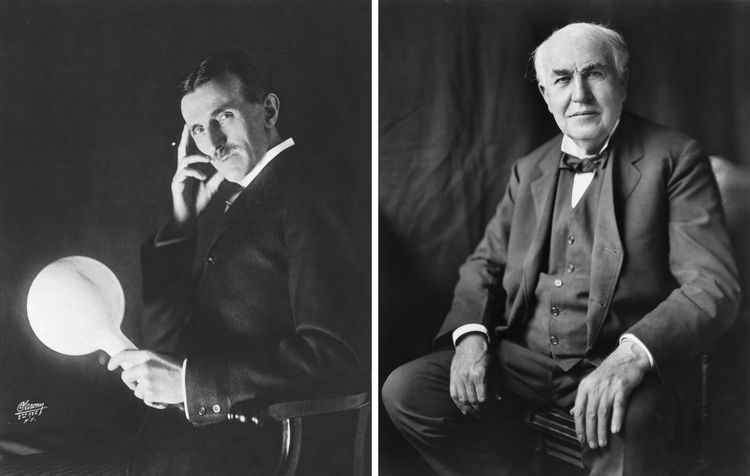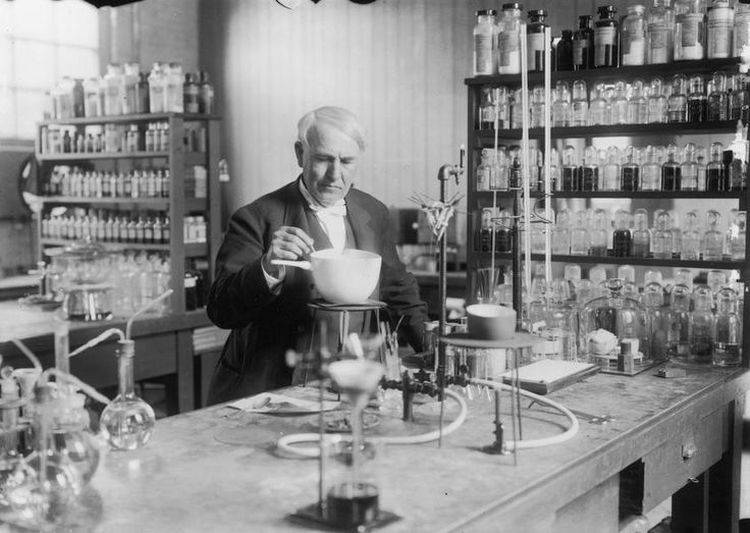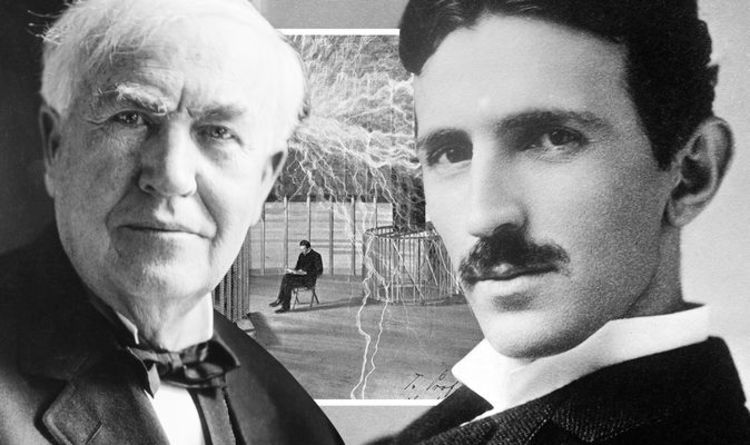Two Accomplished Inventors Who Inevitably Clashed: Tesla And Edison
The names Thomas Edison and Nikola Tesla are familiar, some would say well-known to many. Tesla invented the alternating current (AC), the most widely used power transmission system in today’s world. Edison is credited with developing the direct current (DC).
Although both men were accomplished inventors who ultimately informed and transformed the world of electricity, they maintained opposing views on how best to transmit electricity.

Shedding Light On Different Methods
Born in Croatia on July 10, 1856, Tesla was enjoying a sunset stroll in 1882 when he suddenly had a vision about the design and functioning of an alternating current motor. After unsuccessfully pitching the idea and failing to secure the production of his induction motor in France and Germany, he decided to try and meet with the only person he believed might be willing to help him: Thomas Edison.
Edison, a successful businessman nicknamed the “Wizard of Menlo Park,” had gained recognition for inventing the incandescent light bulb and the phonograph. At 28 years old, Tesla set out for America and arrived in New York on June 6, 1884, ready to astound Edison with his invention. With only four cents to his name and a letter of recommendation from an associate of Edison, Nikola was confident that he could impress Edison with his alternating current motor invention.
Edison, a strong advocate of direct current, believed that alternate current was dangerous and risky. Direct current, however, had two major drawbacks; it could be transmitted only over a short distance, and its voltage couldn’t be adjusted up or down. According to Tesla, alternating current could transmit power over long distances, making it more useful and expedient than direct current; however, it required a transformer to regulate voltage power.

Illuminating Ideas
Both Tesla and Edison were brilliant inventors who forever altered the electricity industry, but that is where their similarities end. Their strongly-held, differing views on electricity transmission fed an undeniable conflict between the two.
Edison, a savvy businessperson, and a skilled (some say ruthless) entrepreneur published his own newspaper at the age of 12. He promoted ideas he believed would be commercially viable, affirming that, “Anything that won’t sell, I don’t want to invent. Its sale is proof of utility, and utility is a success.”
In contrast, Tesla never appeared to be overly concerned about the commercial success of his inventions. An unassuming person, he was dismissive as far as money was concerned, declaring, “Money does not mean to me what it means to others. All my money has been invested in inventions to make man’s life a little easier.” His disregard for accumulating money often led to people taking financial advantage of him; consequently, he struggled financially at many times during his life.
Edison eventually hired Tesla as one of his chief engineers and asked him to improve the functioning of one of his direct current generators. He promised to pay him $50,000 for his work. After successfully completing the task, Tesla requested payment but was informed by Edison that the monetary promise was only a joke and should never have been taken seriously. “You just don’t understand our American sense of humor,” he laughed.
Betrayed and bitter, Tesla immediately resigned. He would spend the following year licking the wounds that resulted from Edison’s cruel treatment and digging trenches for $2 a day that would be the site of underground electricity cables for Edison’s Company.

Two Geniuses Nominated For The Nobel Prize
In 1915, Tesla and Edison were considered potential Laureates for the Nobel Prize Award in Physics; neither was awarded the honor, which went to Sir William Henry Bragg for his X-ray crystal mapping. Rumor had it that they didn’t win because their public and embittered rivalry had been played out on the global stage, undermining the significance of each other’s achievements. When Tesla and Edison were contacted about their failure to win the prize, both claimed that they were unaware of their nominations.

